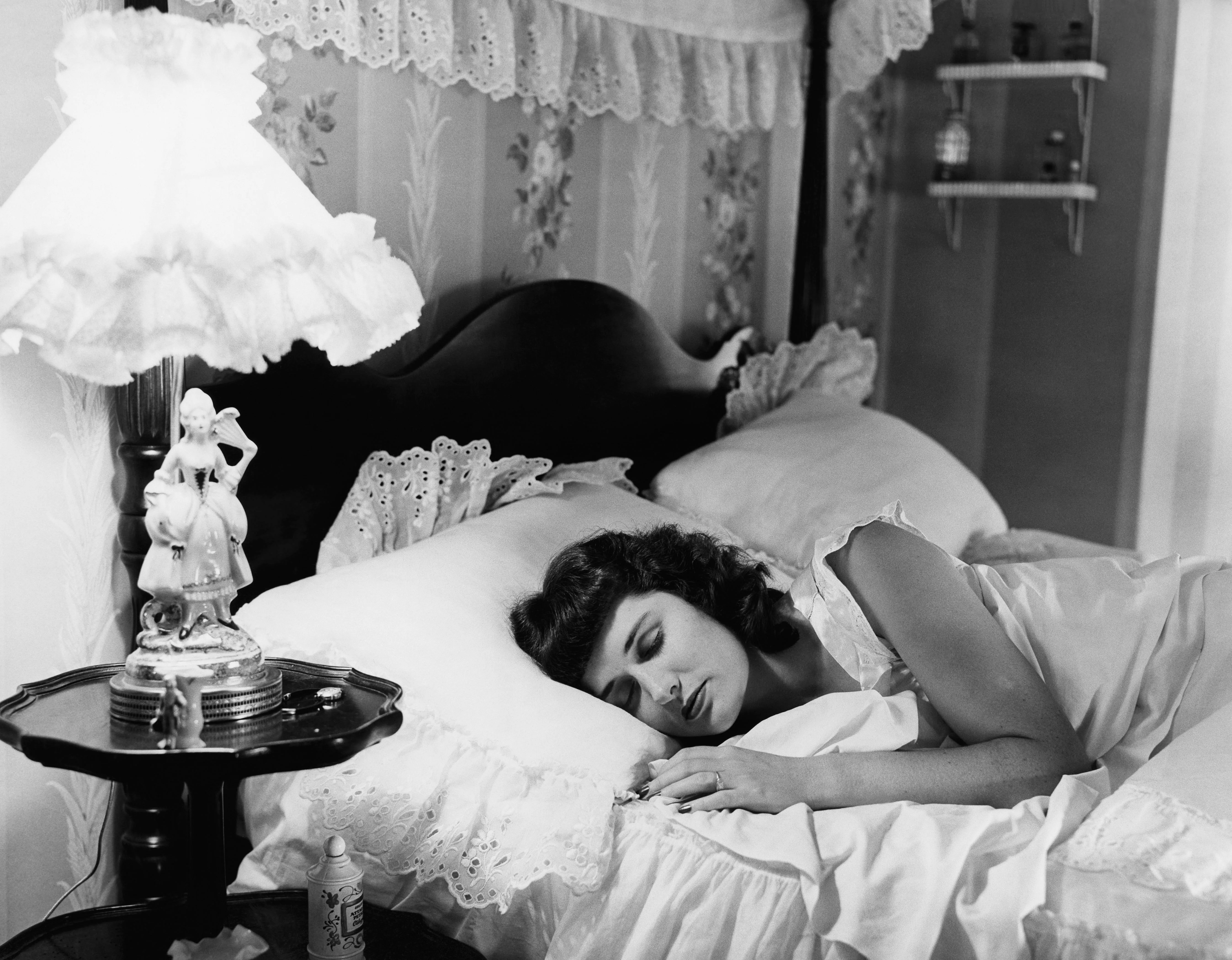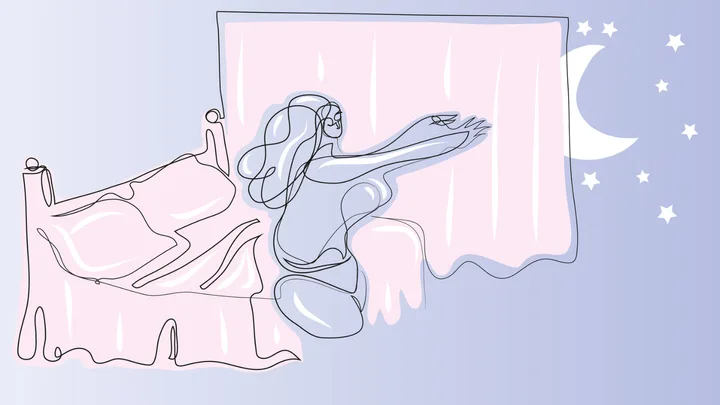Sleep is one of the most essential functions our bodies perform. While we’re asleep, our bodies are working to repair tissues, strengthen the immune system and regulate essential hormones like cortisol and insulin. When our rest is consistently disrupted by poor sleep hygiene and habits, it can wreak havoc on our waking lives. Sleepwalking and sleep talking is something we’ve seen hundreds of times in movies and television shows, but it’s a very real phenomenon that can not only disrupt our sleep, but have dangerous health effects if left untreated.
Here’s everything you need to know about sleepwalking and sleep talking.
What is sleepwalking?
Sleepwalking, or somnambulism, is when someone gets up and moves around while still asleep. It mostly happens during the deep stages of non-REM (rapid eye movement) sleep, which is usually in the first third of the night.
A sleepwalker may simply get out of bed and walk around, or they may even attempt to do day-to-day activities like eat, clean or leave the house. Though it’s more so common in children, approximately 7 per cent of Australian adults have reported to be sleepwalkers.

So, what actually causes sleepwalking?
There are a number of reasons why an adult might sleepwalk, including:
Sleep deprivation: Someone who is consistently not getting enough sleep is likely to sleepwalk. Being sleep deprived increases the likelihood of sleepwalking because it disrupts the normal sleep cycle.
Stress: Mental or emotional stress can disrupt a normal, healthy sleep cycle. Any disturbances to your sleep pattern can have a number of health effects, including sleepwalking.
Genetics: Sometimes, genetics is to blame rather than poor sleep. If someone in your family sleepwalks, you’re more likely to experience it as well.
Medications: Certain types of medications, especially ones that are used to treat insomnia or psychiatric conditions, can see people sleepwalking as a side effect.
Medical conditions: People with chronic sleep apnea may experience sleepwalking. However, even more benign conditions like having a fever or even migraines can sometimes lead to sleepwalking episodes.
Sleepwalking once in a while is typically considered to be benign and harmless. However, if you’re suffering from prolonged episodes of sleepwalking or if your sleepwalking tendencies become dangerous, then it may be indicative of a deeper, sleep-related issue.
What is sleep talking?
Sleep talking, which is also known as somniloquy, is when a person talks in their sleep and is far more common than sleepwalking. It can happen in both REM and non-REM sleep and can range from a simple sentence to having entire conversations. While people may only mumble incoherent words, others can speak clearly.
Sleep talking can be triggered by a variety of factors, including:
Stress and anxiety: Emotional strain can lead to disrupted sleep patterns which can also manifest as sleep talking.
Sleep deprivation: Like sleepwalking, being sleep deprived disrupts the normal sleep cycle which also increases the likelihood of sleep talking.
Fever: Being unwell also disrupts our natural sleep cycles, because of this, having a fever and being sick can induce sleep talking episodes.
Alcohol: Drinking alcohol or even using certain medications can interfere with a healthy sleep pattern and trigger sleep talking.Genetics: Similar to sleepwalking, sleep talking can also sometimes purely be caused by genetics. If someone in your family sleep talks, then you likely may also be prone to sleep talking, too.



